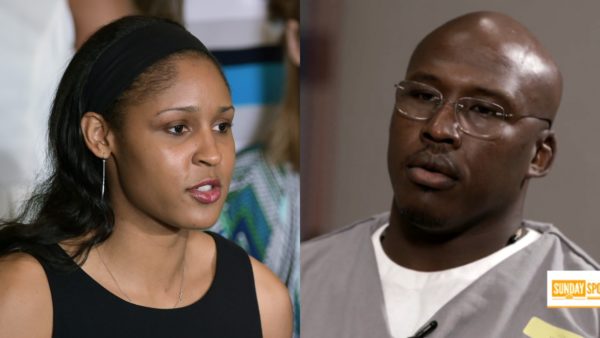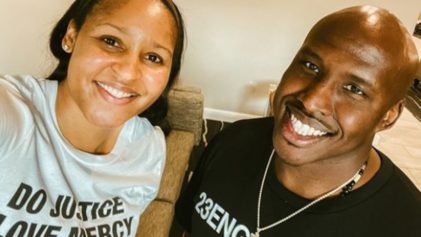A judge overturned the conviction of Jonathan Irons, a Missouri man whose plight prompted WNBA star Maya Moore to take a break from basketball.
Cole County Circuit Judge Daniel Green overturned the conviction on Monday, March 9, citing evidence suppressed by the prosecution, reported NBC News. Irons has been in prison since 1998, when he was convicted and sentenced to 50 years for burglary and assault.
Moore, 30, met Irons during a 2007 visit to Jefferson City Correctional Facility with her godparents. Last year, she announced she would take a break from playing with the Minnesota Lynx to focus on her friend’s case. In January, she announced she would be absent for another season, per The Minneapolis Star Tribune.

She described the judge’s decision as “surreal.”
“We finally have justice. I was just thinking, ‘Did this really happen? Did it?’” she told The New York Times after the ruling. For Moore, it serves as proof stepping away from her career temporarily was the right decision.
“It is so sweet to see the redemption that came from stepping away and giving what I had to this case,” Moore added. “It feels like we are holding up that Final Four trophy, but there are still a couple of steps.”
Irons was also pleased with the results and praised Moore for her efforts.
“It feels like I can just breathe, like the weight of the world is off of me, like I have the chance to live,” he said.
“She saved my life,” he added. “I would not have this chance if not for her and her wonderful family. She saved my life and I cannot say it better than that.”
Irons was 16 years old when he was accused of breaking into an O’Fallon, Missouri, home and shooting the homeowner, who was hiding in the closet. He was tried as an adult and convicted by an all-white jury. More than 20 years later, the evidence used to secure the conviction is being scrutinized.
The prosecution said Irons confessed to the crime, but the defense refuted this claim. Moore was interrogated by one police officer, but the conversation was not recorded. Fingerprints found on a door in the house did not match Moore or the homeowner. Additionally, there was no DNA connecting Moore to the scene. The defense believes this evidence points to a wrongful conviction.
Green appeared to agree because he said the prosecution’s evidence is “very weak and circumstantial at best,” and investigators failed to produce a fingerprint report. He also disputed statements from the sole eyewitness because it is “dotted with inconsistencies.”
Despite the good news, Green isn’t in the clear. The state Attorney General’s Office has 15 days to appeal and if they don’t, the case must be retried within 30 days.


